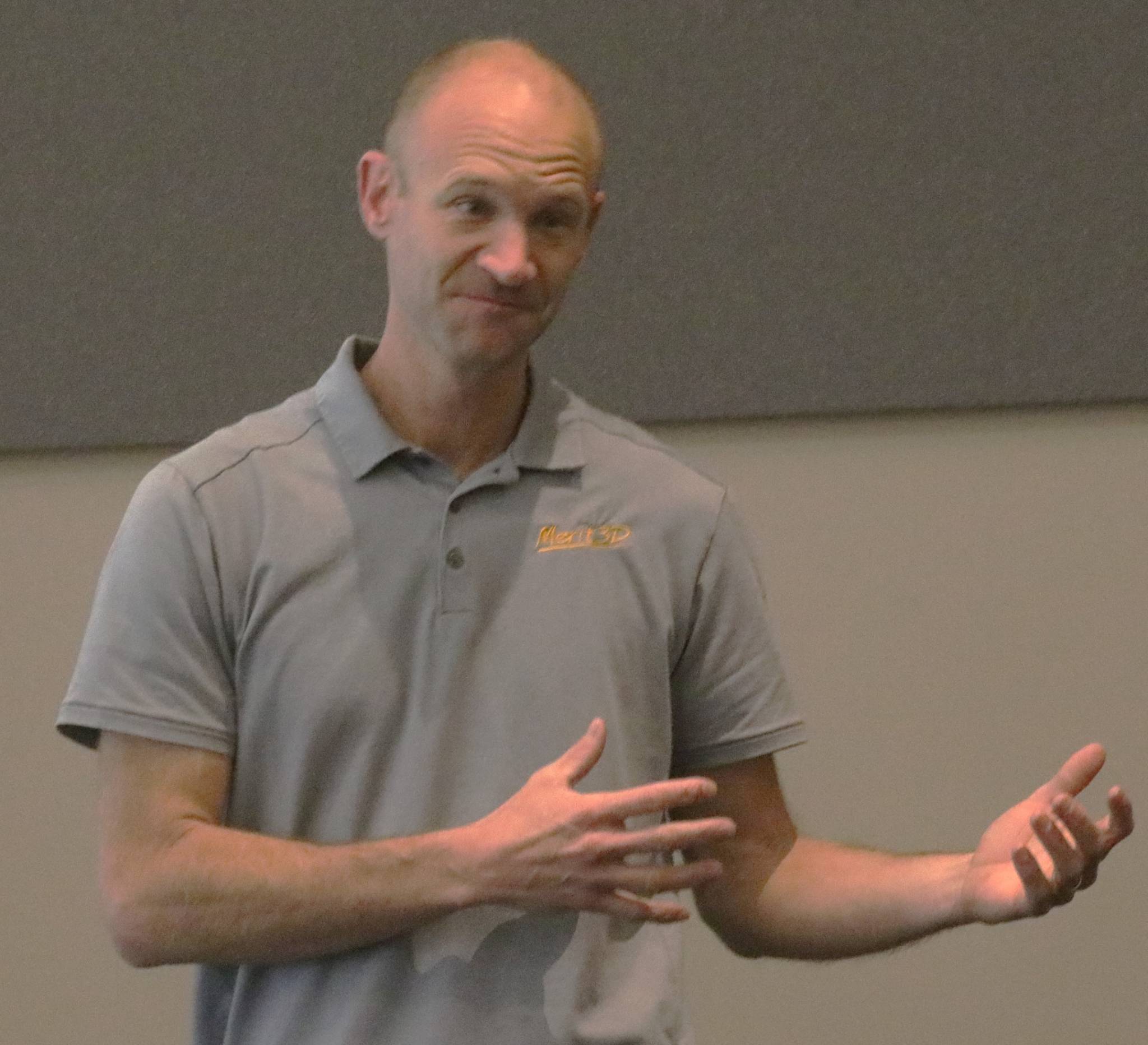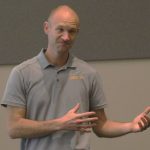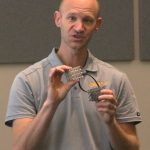Castle Country Business Expansion and Retention Press Release
Reliance on other parts of the world for manufacturing has been of big concern to business people and politicians across the spectrum for many years.
The Castle Country Business Expansion and Retention general board heard from a local company on February 29 that it is expanding its footprint in bringing manufacturing processes back to the United States. Merit 3D is a direct break off of Loveless Ash/Dustless Technologies which has been in the Carbon-Emery area since 1985 when Mike and Colleen Loveless began building vacuums for cleaning out stoves and fireplaces. Inn the 1990’s the firm started building wet/dry vacuums as well. The cost of doing that was largely impacted by the expense of the molds they had to purchase for plastic injection.
“These molds are big hunks of steel that weigh about two tons,” said Spencer Loveless who runs the company today. “You need a crane to raise it and lower it into a big injection molding machine. Those molds cost $750,000 in the mid-1990s. Today those kinds of molds are well over a million dollars. They are made in Taiwan and we use those today. That is the traditional way to make plastic pieces.”
Over the years the company has had to invest more and more money in such molds for other vacuums they have designed as well as for tools that go with them. It’s all done with the same process. Once the mold is cut, the product can’t be changed, unless a new mold is created.
“One of the biggest complaints about our vacuum is that it takes two hands to carry it because it has two handles on it,” he said. “In order to change that unit it would cost $100,000 to put just one handle on it. To make a new mold is very time consuming. For the smallest molds it takes at least three months to have them made and arrive in the United States. Large mold acquisition is a nine month wait.”
At one point he said the employees of Dustless Technologies wanted to create a new vacuum. Because of the expense in doing that Loveless said he suggested to them that maybe it could be 3D printed.
“The response was pretty negative to that,” he stated.
The concern was what kind of parts 3D printing could make and moreover how slow the printers work. In addition when the parts are done they often have surface blemishes and they are sometimes weak.
“But I figured if we could do it we could skip the molding process and go from designing and selling a product in years to a few months. So to do it we had to get the right cost, the right quality and have the ability to be scaled up for the numbers needed,” he stated.
The company scoured the globe to look for the right technology to do this. Most of the companies that make 3D printers told the company that it would be 15 years before that kind of technology was available.
“We finally did find a company in the United Kingdom that had created a really big printer,” stated Loveless. “The printers were about $20,000 each, but the parts they made were pretty smooth. In fact they looked like they were injection molded. It took about six months and they sent us various materials that we tested to see if it met what we needed. We found some materials that were tough and strong.”
While pricing was still really high because it is a brand new material, it was worth it. Then something happened that changed the market. Covid came along and suddenly there were 230 ships off the Port of Long Beach that couldn’t be unloaded. Molds and manufactured injection products for other companies dried up.
“We were making parts for our own company, and we were approached by others who needed products produced because of the shipping problem,” he said.
It began with a company based in Heber that needed phone cases. Loveless said they realized that there was another business venture possible and so they incorporated Merit 3D just to supply other companies with parts.
“In 2021 we began by producing a 1000 pieces in the first 30 days, and there was quite a learning process to that. Last year we got orders for over one million pieces and we were cranking out 40-60,000 pieces per week. One day we produced 62,000 parts. The growth has been awesome.”
Now they are producing parts for a number of firms and have had contact from some major US companies who have voiced interest in what they are doing. In addition, other 3D print companies are reaching out and asking how to do what Merit 3D is doing.
“The cost, the quality and the scale ability are the aspects that we use to educate people to the fact that 3D printing is viable,” he said.
Loveless then went over a number of case studies with different companies they have worked with and showed how successful the relationships have been. Phone cases to nozzles for crop dusting planes are presently being produced in Price. These companies have eliminated the cost of molds and the hassles of long term distance/design problems. The customization of parts is also very viable. With 3D printing no one needs to be stuck with the same old product for years because of the initial cost of molds.
“Our goal is to build a huge manufacturing facility just south of Price,” said Loveless. “We want thousands of printers, with automated systems that will bring prices down so we can be competitive globally.”
The next BEAR meeting will take place on March 28 at the Jennifer Leavitt Student Center Alumni Room on the USU Eastern Campus. It will start at 8 a.m. and the speaker will be John Houston of Intermountain Electronics.



